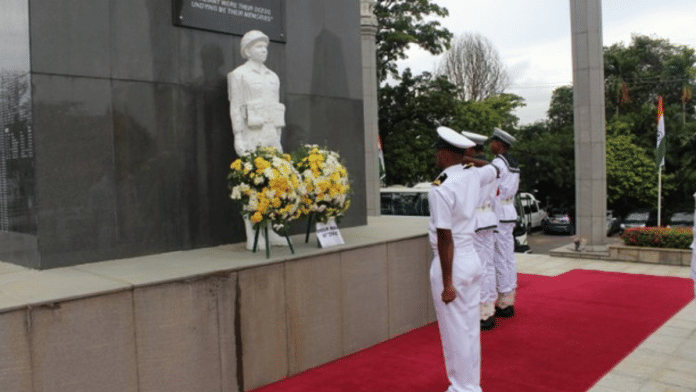It is over 35 years since the Jaffna University Heliborne Operation in which 29 Indian Peace Keeping (IPKF) soldiers were martyred. I was in Madras (now Chennai) at the time when I got a call from the then Army Commander Southern Command, Lt Gen Depinder Singh to immediately rush to Sri Lanka and take over command of the IPKF. It is one’s worst nightmare to lose ones men in battle, and that too when the loss was avoidable with proper planning.
LTTE trap
I landed in Jaffna at the Palaly airfield within a few hours and took over from the General there who was sent on `leave’. I felt my first priority was to rescue the survivors and those stranded at the Jaffna University complex.
To explain the situation in brief; on the night of 12 October 1987 the General in command of the IPKF claimed he had intelligence that the Jaffna University complex was being used by the Liberation Tigers of Tamil Eelam as their headquarters and the top LTTE leadership would be meeting there. Accordingly, he planned a heliborne operation to capture the LTTE leadership at the University after which the plan was to capture the Jaffna town.
Unfortunately, the LTTE was already aware of his plans as they had intercepted his transmissions on wireless and the soldiers walked into a trap. The LTTE had positioned its men on the top floor of the university who opened fire on the IPFK. This was a unprofessional plan as did not take into account one of the basic rules of secure Landing Zone (LZ) before launching a heliborne operation. So my first reaction was also that of anger along with anguish at the senseless loss of lives.
I felt my first priority was to rescue the survivors and those stranded in the University complex and then take over the town of Jaffna. Back in India, questions were raised in the Parliament as to what was happening and what action the Indian government was taking. They were told that General commanding the IPKF had proceeded on leave and had been replaced by Gen Kalkat. At about the same, I got a call from Ronen Sen at the PMO who told me that PM Rajiv Gandhi was on his way to Washington where he would be addressing the US Congress and it would be a shame for India if the Indian Army, third largest army in the world could not deal with a group of bandits, terrorists who had taken control of Jaffna, it would be extremely bad optics.
Also read: New weapon systems branch—How Air Force’s branches expanded and evolved from RAF to IAF
Down the clock tower
I was careful not to continue with the frontal approach which had resulted in heavy casualties for us therefore instead of doing what the LTTE was expecting, I decided on an enveloping movement from east and west to surround the town from both sides bypassing the built-up areas entirely. Brig Manjit Singh lead the western flank and another Brigadier was sent from the eastern flank. A study of the map of Jaffna showed a railway line running parallel to the main road to the Town. Squadron commander of the Armoured Corps Major Anil Kaul lead his squadron of tanks on this route. They realised this route was booby-trapped and so instead of moving on the road they moved on the railway track itself.
During this move Major Kaul lost one eye and was later awarded the Vir Chakra. Brigadier Manjit Singh who moved his brigade successfully by the western flank was awarded the Mahavir Chakra. Major R. Parameshwaran, a company commander on the western flank, fought his way gallantly but got killed in action and was awarded the Param Vir Chakra posthumously.
Meanwhile, I was concerned about the machine-gun fire that the LTTE was raining down on us from the Jaffna clock tower, which was the highest building in the town. I asked the Company Commander Major Tippy Brar to fire at it with rocket launchers. A rocket launcher hit the top of the Clock Tower taking down the machine gun.
The LTTE, which had positioned itself at the front of Jaffna town, was not expecting this attack from their flank or the rear. We managed to get our men out and fly the survivors to Chennai hospital. Jaffna town fell 16 days later. But this was the first stage of the successful IPKF’s battle for the Jaffna town and even today I feel for the unavoidable lives we lost at the Jaffna University.
The author is a former Commander of the IPKF. Views are personal.






